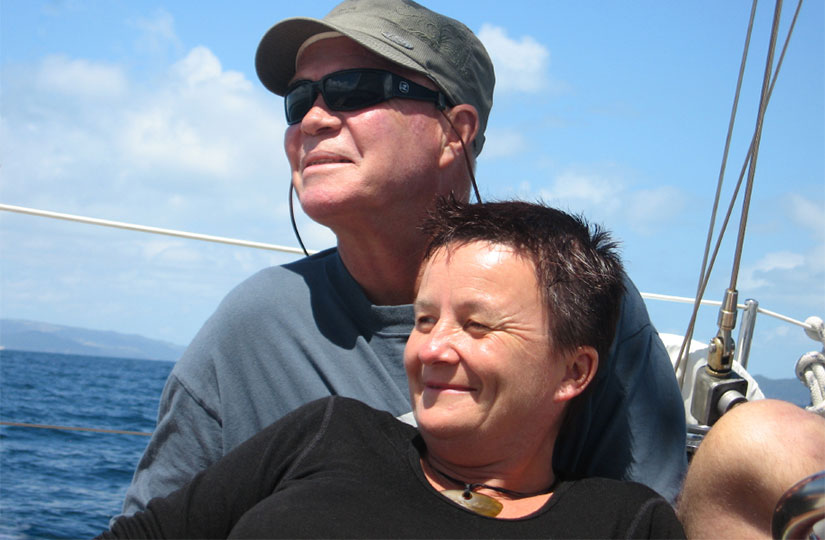Every new thing you do starts with an idea. I love ideas because they lead to possibilities and challenges and new projects. It can be exhausting though for the people around you unless you know people who have the experience and vision to either realise the idea or kick bad ones for touch.
The Gulf Journal is one of those ideas.
I spend a lot of time in the Gulf – sailing and working and it’s been this way now for nearly 30 years. I really enjoy it because I get to work in a place I love. I love this place because of its diverse environment – marine and terrestrial but also for the people I encounter. People are as important a part of the Hauraki Gulf as its natural environment.
But often when faced with environmental issues or problems we lay the blame for things that go wrong on other people – we pass the buck. It’s overly simplistic and often alienates the very ingredient that’s always needed to reach a solution or a compromise. We turn what should be common sense into rocket science and forget that solutions are best sought by good old listening and talking and gaining a common understanding.
Yes it can be challenging but that’s the cool thing – if you see problems as challenges to overcome – the seemingly impossible becomes possible. I’ve worked on many environmental projects where people are often at opposite ends of the spectrum in their levels of support but are passionate in stance and ironically always love their environment. They just view it differently. My job is often to work out how to get them to a common understanding.
Listen to Sir Michael Faye’s story about how relationships led to the restoration of Ahuahu-Great Mercury Island at the EDS 2015 Conference.
In my experience the best approach is always about going in with an open mind and using your ears before your mouth – listening first to stories and then striking up conversations. Environmental work and issues always evoke passion and emotion – it’s important to respect everyone’s opinion and listen to their stories and experiences. There is always a way forward but often you have to take a few steps back to get there.
Stories and experiences really do matter and are vital to understanding motivation for stances on issues and often indicate whether a project will fly or not.
That’s where ideas like the Gulf Journal come in.
The Gulf Journal is intended as stories from people who live, work and play in the Gulf but written in such a way that tease out the bigger picture, spark ideas and innovative solutions and understanding of differing opinions. It’s also about conversations that lead to action on the ground and people working together through learning by doing and sharing lessons learned.
It’s vitally important that we see the Gulf as a whole, where everything is connected to everything else and what happens on one island or in one part of the sea will inevitably have an impact (positive or negative) somewhere else. Understanding how people see and use the Gulf is the key to the future, whether it is for utilisation or conservation purposes.
The Gulf Journal has its roots in Tane – the stories of the Auckland University Field Club’s journeys to islands from 1948 to 1999.
These stories were always based around the natural environment but always included a people element – the challenges of getting ashore, the people encountered on the islands, the contents of picnic baskets. For me – someone who is not a scientist or specialist but who relies on research and science from a wide variety of sources to inform the work I do – the stories in journals like Tane inspire me to learn more, think smarter and best of all enjoy what I do. They remind me why I love the Hauraki Gulf and of the place of people in its success.
Each quarter we aim to publish stories that tease out the place of people in the Gulf. Let us know what you think. If we can do better let us know how. Consider writing a story of your own. Encourage someone else to write one. Give us ideas for stories. Pass the journal on. Your feedback is essential to giving this idea a bright and useful future.


